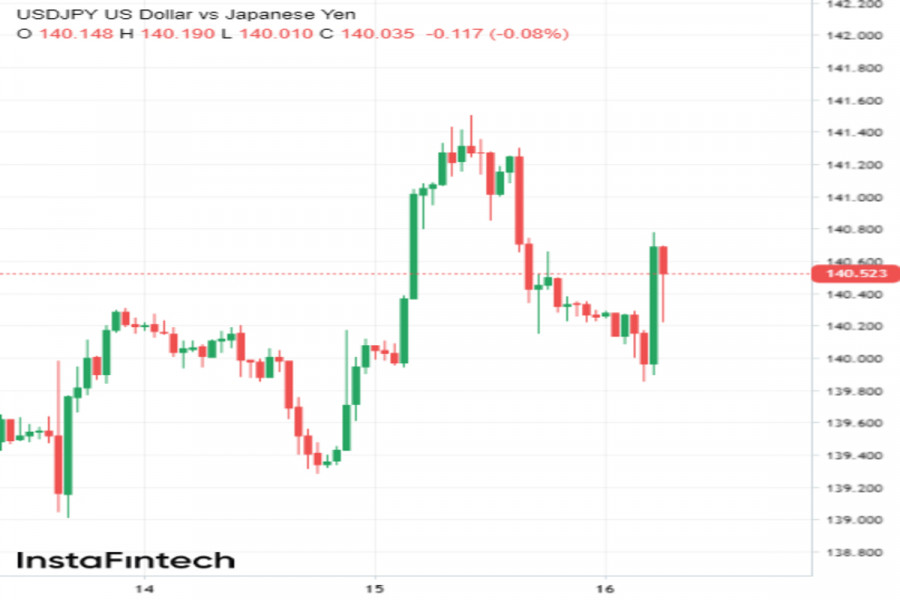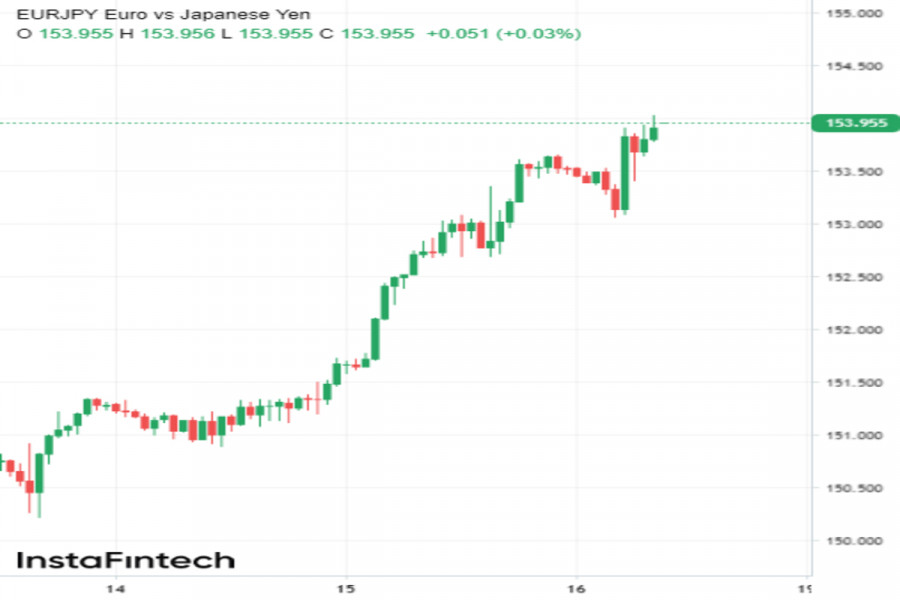On Friday morning, JPY dropped to a 7-month low against the US dollar and reached its lowest level in 15 years against the euro as traders anticipated a dovish decision from the Bank of Japan (BOJ). The market's predictions were accurate. Once again, the Bank of Japan remained committed to its ultra-loose monetary policy. Does this mean a death sentence for the yen?
The Bank of Japan continues to stand apart from its hawkish counterparts. On Friday morning, it was announced that the regulator maintained its dovish monetary policy despite the increasing inflationary pressure in the country.
Interest rates in Japan remained negative (-0.1%), and the yield on 10-year bonds remained at zero. The BOJ also made no changes to its yield curve control mechanism, although some market participants had high hopes for the regulator to make hawkish moves.
The Japanese central bank justified its decision by stating that its top priority at the moment is to support the fragile economic recovery amidst a sharp slowdown in the global economy.
Recent tightening rounds in Australia, Canada, and Europe have once again increased the risk of a global recession. In such conditions, the BOJ simply cannot afford to begin normalization of its monetary policy, even though price growth in the country continues to gain momentum.
In April, Japan's core consumer inflation reached 3.4%. The indicator has persistently remained above the BOJ's 2% target for over a year. However, until recently, the regulator considered the price growth a temporary phenomenon and expected a significant decline in inflation in the current fiscal year to 1.8%.
Nevertheless, analysts have compelling reasons to believe that during its next quarterly review scheduled for July, the Bank of Japan may significantly revise its previous price growth forecast upward.
Market participants expect that during today's press conference, BOJ Governor Kazuo Ueda will certainly address this issue.
If the official indicates that the interpretation of "temporary" in relation to inflation has lost its relevance and that the regulator now expects further strengthening of price pressure in the country, it could trigger another wave of speculation about a possible change in the monetary policy of the Bank of Japan in the second half of the year.
Such a scenario could support the yen, which has significantly weakened recently against the dollar, euro, and pound sterling.
This week, the USD/JPY pair reached its highest level since November last year at 141.50. Against the euro, the yen dropped to a 15-year low of 153.685, and against the British pound, it fell to its lowest level in 7 years at 178.34.
The weakening of the yen against these currencies was fueled by growing investor concerns about the increasing monetary divergence between the Bank of Japan and its counterparts (the US Federal Reserve, the European Central Bank, and the Bank of England).
Although the US regulator did not raise interest rates this month, it signaled the possibility of continued aggressive policy in the country. According to the updated dot plot from the Federal Reserve, American policymakers are counting on at least two 25-basis-point rate hikes this year.
On Thursday, the European Central Bank, as expected, raised rates by a quarter of a percentage point and indicated that it sees potential for further tightening. ECB President Christine Lagarde stated that a rate increase in July is highly likely.
As for the Bank of England, in May, the regulator also raised interest rates by 25 basis points and warned of the possibility of further hawkish moves if inflationary pressure does not begin to ease.
The fact that major regulators can raise their rates even further, thereby widening the already significant gap with the Japanese central bank, is undoubtedly a negative factor for the yen.
Currently, JPY remains the most attractive currency for carry trading. If investors fail to detect even the slightest hawkish signal in the speech of the Bank of Japan Governor today, it could intensify the sell-off in the yen across multiple directions.
However, it is important to remember that excessive depreciation of JPY poses a significant risk at the moment, as Japanese authorities have noticeably stepped up their warnings about currency intervention.
"I don't think the government will actually intervene in the market unless the dollar trades below 145 against the yen. But verbal interventions can also have a significant impact on trader sentiment. The risk of intervention by Japanese authorities is the only reason to buy yen at this stage," shared Marito Ueda, an analyst at SBI Liquidity Market.
Conclusion
As we can see, it is still too early to give up on the yen. Firstly, there is still a chance for it to rise if the Bank of Japan changes its inflation expectations.
Secondly, JPY may strengthen even if the regulator maintains its current stance. In this case, we will likely see a sharp rise in the yen followed by a similarly rapid recovery amidst verbal or actual interventions by the Japanese government.













